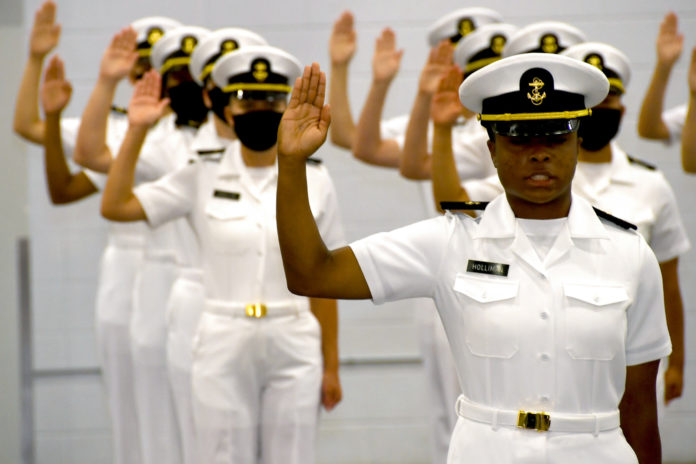
In 2021, an estimated 200,000 veterans are projected to retire from the military. Many veterans will be looking for career opportunities in the civilian sector. With National Hire A Veteran Day on July 25, now is an excellent time for small businesses to look at new and innovative ways to recruit and integrate service members into your company.
While veteran’s resumés might look a bit different from average candidates on paper, their experience and training in managing highly stressful environments make them well equipped for most workplaces. Here are a few ways small businesses, and ones of all sizes, can utilize veterans as great additions to their teams:
Practice transparency in hiring
According to a 2021 report published by Statista, 5.07 million veterans attained a bachelor’s degree or higher. While some veterans you interview might not have an undergraduate degree, you should not dismiss them from the applicant pool solely based on this factor. During the interview process, you will learn about the veteran’s journey, including why they joined the military and their goals as they transition back to civilian life. As they speak, identify key qualities and experiences shared that will add value to your organization. If you’re unsure of something they mention, don’t be afraid to ask questions or inquire further about their military training as many experiences can be applicable to your workplace, once you get past differences in terminology.
Remember that the hiring process is a two-way street. It’s your duty as a business owner or HR executive to accommodate the needs of new hires. Clearly identify expectations for the position, give examples of tasks they will complete, and highlight any metrics or goals the veteran will need to meet. Provide examples of leadership opportunities they can participate in, like outreach to veteran groups or local events they can attend or invite individuals in their personal military network to. This will make your veteran applicant feel welcomed and valued from the start, as well as expand your business network to new audiences.
Accountability and transparency are extremely important values to veterans. If you interview a veteran and tell them you will be in touch regarding next steps, follow through with these actions. Not only is this a good business practice, but it shows accountability and makes candidates more likely to stay in touch about future positions with your company, if they aren’t an immediate fit for your current openings.
Understand the value veterans offer
Through training, military members develop unparalleled levels of comradery, and are constantly working together as teams. They learned situational awareness and emotional intelligence, which makes them empathetic individuals and excellent communicators. They often are used to wearing different hats at once, and are great at delegating tasks, which is beneficial to businesses of all sizes both on an internal and external level. Veterans also provide the ability to quickly adapt to changes and shift gears mid-task, making them versatile, highly efficient workers.
While many of these skills are intangible, they can be extremely valuable for your business. When it comes to practical experience, in particular for entry level positions, remember most industry knowledge can be learned on the job through time. Remain patient and understanding. Keep in mind veterans often have an accelerated learning curve due to their quick adaptability and previous experience.
Expand veteran hiring and position new hires for success
If your company’s goal is to hire more veterans this year, adapting your business environment to accommodate these individuals at all career levels is essential to foster higher levels of employee retention. Equip new hires with resources such as dedicated mentors within your business, recurring check-ins to provide feedback and access to professional development opportunities. Always look to provide veteran employees with strong support systems that will help them learn and grow.
Professional development incentives offer great value to your organization as a whole, but in particular to veterans. Encourage veterans and teams managing them to participate in additional training or certificate programs, both within your organization and through third parties. There are countless certification and development courses available through platforms like LinkedIn for low or no-cost.
Veterans will add value to your business through skills gained during service and intangible qualities like dedication, flexibility and drive. It’s essential for business owners of all sizes to provide them with a supportive environment, coordinated communication, and professional development resources to foster productivity and commitment to shared goals from their first day on the job.
Justin C. Pearson, First Sergeant, U.S. Army (Ret.), is VP of Business Development at the American Armed Forces Mutual Aid Association (AAFMAA). Justin served in the U.S. Army for 20 years, earning the Bronze Star during a combat tour in Afghanistan. Justin has experience managing strategic partnerships and collaborating with Fortune 1000 companies to expand their military talent pipeline.






